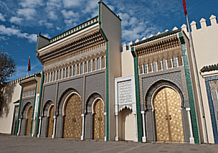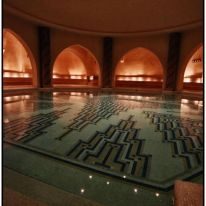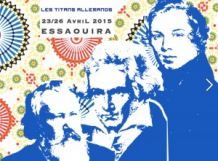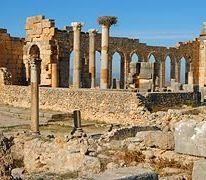
There is no question that the Kingdom of Morocco is committed to the principles of multiculturalism and to the different identities that constitute this Islamic nation. In fact, this diversity is a synonym of what it means to be a Moroccan today.
Dr. Yossef Ben-Meir, a sociologist and the president of the High Atlas Foundation, a nonprofit organization dedicated to sustainable development located in Morocco stated: “An embodiment of Morocco’s integrated development model approach is the way it chooses to preserve its diverse cultures. The kingdom’s 2011 constitutions detail the country’s cultures and ethnicities, past and present.
In Morocco, the preservation of cultural institutions, locations, and artifacts also includes the intention to enhance the lives of people in measurable ways, such as in education, income, and health.
Cultural activities are to be advanced simultaneously and in tandem with human development. Since early in his reign, King Mohammed VI has championed the premise of integrating cultural initiatives and sustainable development into single movements.
The kingdom’s position in regard to the United Nations Alliance of Civilizations, for example, embodies the natural chemistry of actions that are both multicultural and developmental, to improve cooperation among nations. Mohammed VI explained in 2008, “That vision consists in making sure culture serves as a driving force for development as well as a bridge for dialogue.”
It is the community and multicultural dialogue that leads to development becoming a driving force, uplifting the unfolding cultural relationships. From the Moroccan Approach: Integrating Cultural Preservation and Sustainable Development are essential. While discussing and teaching about the multi-faceted national identity is important, the outcome of intercultural dialogue and partnership must surpass this.
Taking into consideration the difficult conditions of poverty that impact most people and especially those in rural places (getting even worse during a pandemic), then we will need to admit that Moroccan multiculturalism is not reaching Morocco’s own standard of translation into sustainable development for all the people.
Dr. Yossef Ben-Meir’s case in point: “Farming communities of Morocco’s countryside combine to require some billions of fruit trees and medicinal plants as they transition away from the traditional practice of growing barley and corn. In order for communities to generate the trees they need; they require the gift of land to grow seeds in local nurseries because they cannot forego their own land and not harvest food every year to survive. The Moroccan Jewish community, next to their 600 cemeteries throughout the nation, has empty lands they are willing to lend without cost to local agricultural associations and cooperatives to help them meet their tree and plant needs.
Moved by the killings at houses of worship of different faiths in different parts of the world – having in common that their congregants unwittingly and warmly welcomed their murderers – I presented this interfaith agricultural opportunity in a letter to King Mohammed VI of Morocco. He instructed the government to fund (through the National Initiative for Human Development) the building of the proposed tree nursery on land lent in-kind by the Moroccan Jewish Community in Ouarzazate. On November 5, the nursery that will produce 200,000 fruit trees from native seeds opened on a new, one-hectare sized agricultural terrace built on a mountainside above the 1,000-year-old sacred burial site of Rabbi David-Ou-Moché.

Officials in Morocco’s cabinet of the Minister of Interior declined the opportunity to receive additional funds from abroad for this project, preferring instead that it be financed and implemented entirely based upon Moroccan partnerships. There is globally poignant meaning that the Kingdom of Morocco expended public resources in order to build a needed organic fruit-tree nursery for and by its people on land provided without cost by the Moroccan Jewish community. If this interfaith collaboration were brought to a national scale, tens of millions of trees can be generated annually, an essential contribution toward achieving the imperative of alleviating rural poverty. The showing of this form of social solidarity is timely for Morocco; agricultural development is now a cornerstone of the country’s economic recovery plan in the face of the pandemic. Morocco’s uniting of intercultural dialogue with human development is critical for its own sustainable future as is its self-determined message an example to the world.
As exceptional as this nursery project truly is, it is also as rare. Morocco’s faith leaders must find it uncomfortable and unacceptable that the preservation of houses of worship and cemeteries, and even the celebrations of their expansively rich cultures, along with their required financial investments, occur in the midst of dense and debilitating poverty. Morocco should, for example, mandate that all restored historical mosques, synagogues, and churches be not only for their own sake and for that of international visitors and worshipers, but also as ongoing meeting grounds for local communities to jointly plan their development future, to participate in workshops that strengthen their capacities to design and manage new projects and forge partnerships, and indeed to be working spaces for community development, mobilization, and action. Finally, public leaders should strongly encourage conferences, associations, and initiatives that promote appreciation of Morocco’s multiculturalism, to be fully dedicated as well to the fusion of human development as central to their cause.”
Extract from the speech delivered by His Majesty King Mohammed VI held in New York from September 20 to 22, in 2010:
“At the same time, we need to anticipate potential problems and start thinking about the broad lines of our action beyond 2015, so as to ensure the continuity of our endeavors and be prepared to meet new challenges. We should do this through collective action to strengthen the foundations of a global, harmonious, solidarity-based system to promote sustainable human development, in which efficient, equitable governance should play a key role so that we may offer upcoming generations a dignified life and build a future of peace, stability, progress, and prosperity for all.”
Morocco has always been working on creating a social and policy environment that sincerely encourages interfaith dialogue, partnership, and actions; however, the contribution of people and organizations are required to manifest these opportunities that enhance local and national life. A corresponding model is required as well to build, fully achieve, and maintain sustainable development.




